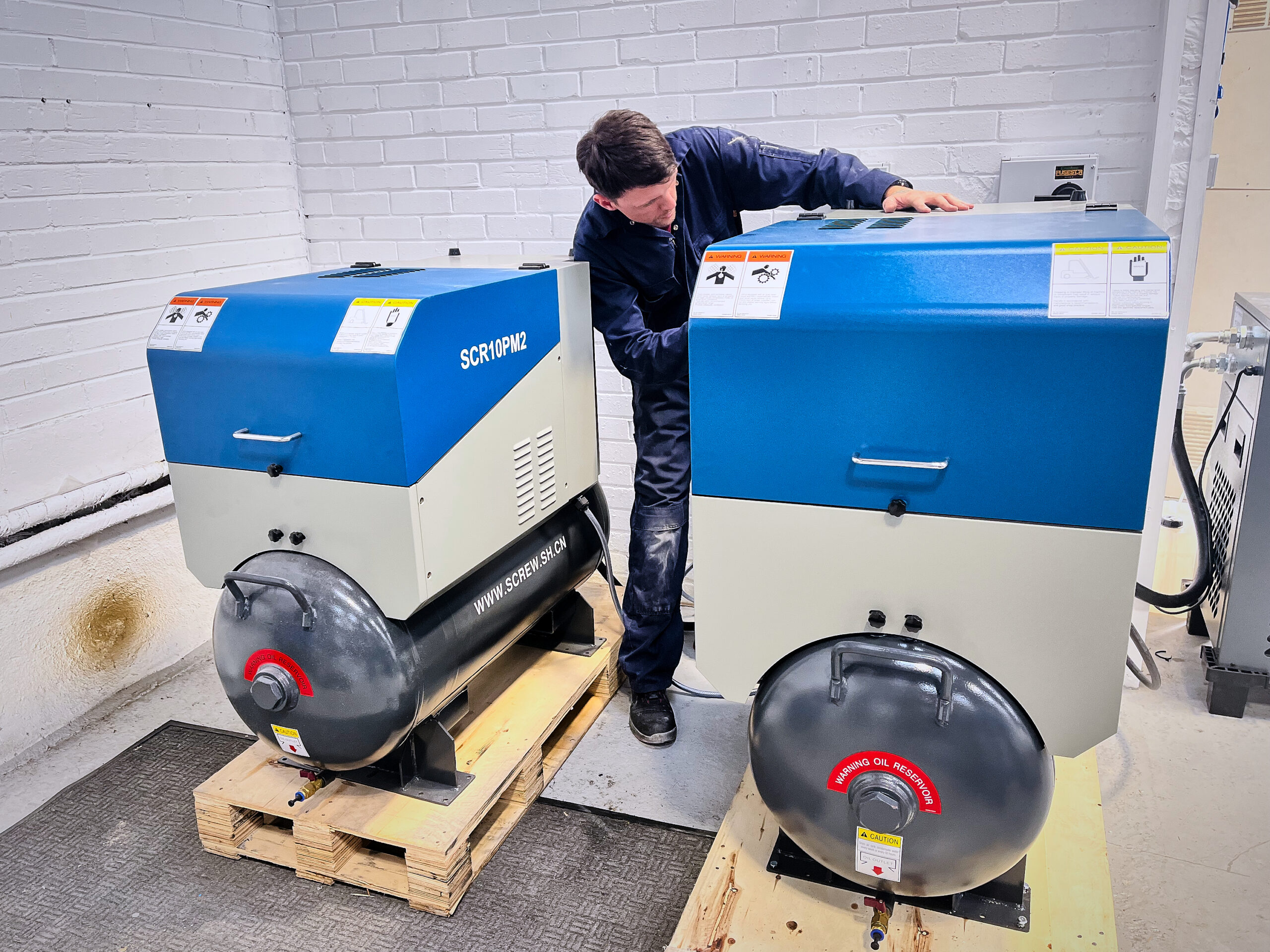Permanent Magnet Compressor: A permanent magnet compressor, also known as a variable-speed drive (VSD) compressor or inverter compressor, utilizes a permanent magnet motor to drive the compression process. Key features of a permanent magnet compressor include:
- Energy Efficiency: Permanent magnet compressors are highly energy-efficient due to their variable-speed operation. The motor’s speed can be adjusted to match the air demand, resulting in energy savings compared to fixed-speed compressors.
- Compact Design: Permanent magnet compressors often have a compact design due to the absence of bulky components such as a gearbox or a belt-drive system. This makes them easier to install and integrate into space-limited environments.
- Precision Control: Permanent magnet compressors offer precise control over the compression process. The variable-speed drive allows for fine-tuning the compressed air output to match the required demand, minimizing energy wastage.
Screw Compressor: A screw compressor is a type of positive displacement compressor that uses two interlocking rotors to compress the air. Key features of a screw compressor include:
- Continuous Operation: Screw compressors provide continuous operation, making them suitable for applications with a constant and steady air demand.
- High Efficiency: Screw compressors are known for their high efficiency and reliability. They can deliver a large volume of compressed air at high pressure with minimal vibration and noise.
- Oil Lubrication: Most screw compressors use oil lubrication for sealing, cooling, and lubricating the internal components. This requires regular maintenance, including oil changes, filter replacements, and monitoring of oil levels.
Oil-Free Compressor: An oil-free compressor, as the name suggests, operates without the use of oil in the compression chamber. Key features of an oil-free compressor include:
- Clean and Oil-Free Air: Oil-free compressors are used in applications where air quality is crucial. They prevent oil contamination in the compressed air, making them suitable for industries such as medical, food and beverage, electronics, and pharmaceuticals.
- Reduced Maintenance: Oil-free compressors generally require less maintenance compared to oil-lubricated compressors. There is no need for oil changes, filter replacements, and oil-related maintenance tasks.
- Cooling and Lubrication: Oil-free compressors use alternative methods for cooling and lubrication, such as air or water cooling and specialized materials for reducing friction. This eliminates the need for oil lubrication while maintaining performance and reliability.
It’s important to consider factors such as energy efficiency, air quality requirements, maintenance needs, operating conditions, and specific application demands when choosing between these compressor types.
We can assist you in selecting the most suitable compressor for your specific requirements;
Call: 01952 290959
Email: [email protected]

